PRP therapy can regrow 30%-40% of lost hair in 3 months without side effects.
Platelet-rich plasma improves skin and hair growth in newborn mice.
 July 2018 in “Elsevier eBooks”
July 2018 in “Elsevier eBooks” Lichen Planopilaris is a hair loss condition best treated early with various medications, including hydroxychloroquine, to prevent permanent baldness.
 May 2018 in “Hair transplant forum international”
May 2018 in “Hair transplant forum international” Plasma as a graft holding solution improves hair transplant results by increasing graft survival and promoting hair growth.
April 2018 in “Cytotherapy” Both treatments promote hair growth safely, but stem cells are slightly more effective.
 February 2018 in “InTech eBooks”
February 2018 in “InTech eBooks” PRP therapy is effective for hair regrowth and improving hair quality with minimal side effects.
 January 2018 in “Figshare”
January 2018 in “Figshare” Curcuma aeruginosa extract lotion effectively reduces underarm hair growth.

Combining microneedling with platelet-rich plasma enhances skin repair and collagen production but may not offer significant extra benefits.
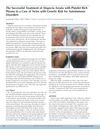 January 2018 in “Hair transplant forum international”
January 2018 in “Hair transplant forum international” PRP injections can effectively treat alopecia areata.
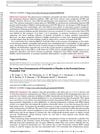 October 2017 in “The Journal of Urology”
October 2017 in “The Journal of Urology” Finasteride reduces the need for prostate surgery but may increase the risk of depression and persistent sexual side effects.
October 2017 in “Planta medica international open” Public education should promote the careful use of Turkish medicinal plants for skin diseases.
 September 2017 in “Springer eBooks”
September 2017 in “Springer eBooks” PRP injection therapy shows promise for treating hair loss, increasing hair count and thickness with minimal side effects.
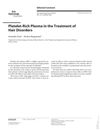 July 2017 in “Skin appendage disorders”
July 2017 in “Skin appendage disorders” Platelet-Rich Plasma (PRP) is becoming popular for treating hair loss and it's important for dermatologists to understand how it works and its safety.
June 2017 in “Journal of the American Academy of Dermatology” Plucked hair can help diagnose pemphigus vulgaris early.
 May 2017 in “Journal of The American Academy of Dermatology”
May 2017 in “Journal of The American Academy of Dermatology” PLAU and SerpinB2 affect cell death differently in various forms of leprosy and could be targets for new treatments.

Processed fat, SVF, and PRP are safe and effective for facial rejuvenation and hair growth.
May 2017 in “Journal of dermatological science” Removing PLCg1 from skin cells caused thicker oil glands and less hair in mice.
PRP treatment can be effective for hair loss.
April 2017 in “Journal of dermatological science” Young mice's hair follicle stem cells are best for turning into heart muscle cells.

Platelet-Rich Plasma treatment is effective for hair loss and chronic ulcers.
 April 2017 in “Plastic surgical nursing”
April 2017 in “Plastic surgical nursing” Platelet-rich plasma (PRP) is an effective treatment for hair loss that involves scalp injections and requires ongoing maintenance.
 March 2017 in “Trichology and cosmetology:”
March 2017 in “Trichology and cosmetology:” Psoriasis treatment may affect body hair growth, with a complex relationship between skin and hair growth mechanisms.
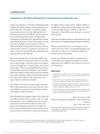 March 2017 in “Dermatologic Surgery”
March 2017 in “Dermatologic Surgery” PRGF is a promising treatment for hair loss with some patient benefits.
 January 2017 in “Archives of Aesthetic Plastic Surgery”
January 2017 in “Archives of Aesthetic Plastic Surgery” Hair care products with placental growth factor can improve hair thickness and density in postpartum hair loss.
Platelet-rich plasma helps human hair cells grow and survive better.
December 2016 in “Clinics in surgery” Understanding hair follicle biology and stem cell control can help develop treatments to stimulate hair growth for cosmetic procedures.

Human hair follicle cells can be turned into stem cells that may help clone hair for treating hair loss or burns.
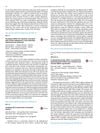 September 2016 in “Journal of Dermatological Science”
September 2016 in “Journal of Dermatological Science” Golden oyster mushroom extract may protect skin cells from aging by its antioxidant properties.
 September 2016 in “Journal of Dermatological Science”
September 2016 in “Journal of Dermatological Science” Plasmacytoid dendritic cells, which overproduce IFN-α, may play a crucial role in starting alopecia areata, an autoimmune disease causing hair loss.
 September 2016 in “British Journal of Dermatology”
September 2016 in “British Journal of Dermatology” Doctors need more training in skin cancer screening, a new treatment is effective for a skin condition, better diagnosis methods for skin cancer are available, hair loss in women may be linked to hormones and cholesterol, certain skin care products might cause hair loss, babies' skin gets weaker after birth, and a gene mutation might be linked to eczema.



















